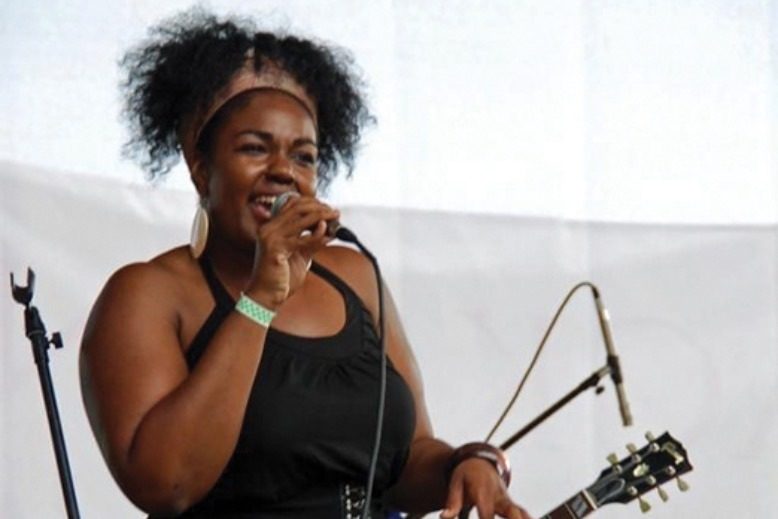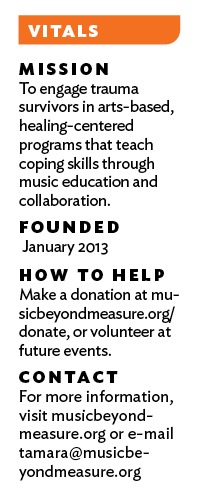
After suffering a breakdown in 2009, Tamara Williams realized she had to deal with the trauma of past incidents of sexual assault and domestic violence. Williams, a jazz vocalist and composer, turned to music—as well as professional counseling—to process her emotions. She began writing and performing original songs based on her experiences.
Music proved to be her salvation. “I felt myself changing, and it wasn’t just me who noticed,” says Williams, 39. “It was other people noticing that I was different, seemed happier, and that my outlook had shifted.”
When Williams couldn’t find any art- or songwriting-therapy groups for trauma survivors, she started her own. Montclair-based Music Beyond Measure (MBM) aims to teach trauma survivors different ways of coping and sharing their experiences through music. Through its programs, MBM aids those recovering from trauma caused by domestic violence, sexual assault and child abuse, and individuals suffering from PTSD.
The nonprofit’s flagship program, the Sing Your Story Project, creates songwriting partnerships between volunteer musicians and survivors. After the partners create a song, they perform it for an invitation-only audience. The program can be run in 8-, 12- or 16-week intervals, or year-round.
For Monica Johnson, a program participant and now an MBM board member, singing her story became a form of meditation.
“It’s liberating,” she says. “It’s one of those things where I’m just purely expressing this one thing in this moment… One of the biggest differences between MBM and other group therapies is it’s really collaborative. We were creating this thing together.”
[RELATED: A Community Clubhouse for Adults Living with Mental Illness]
 Most recently, MBM has focused on programs in domestic-violence shelters and alternative schools, including the Fresh Start Academy in East Orange in the next school year. In addition to providing career fairs, the school programs give young students a way to express themselves through music—and deal with neglected traumas.
Most recently, MBM has focused on programs in domestic-violence shelters and alternative schools, including the Fresh Start Academy in East Orange in the next school year. In addition to providing career fairs, the school programs give young students a way to express themselves through music—and deal with neglected traumas.
The programs “build resiliency through musical activities that encourage healthy self expression,” Williams says. “We can’t prepare kids for every situation; however, we can help prepare them to respond in a positive way. We use the arts to empower, uplift and show them that they have a purpose.”
The Lewis Prize for Music, a creative arts philanthropy, recently awarded MBM $25,000 to support its youth education programs.
MBM typically holds monthly fundraisers and community events, including choir performances. But due to Covid-19, MBM has shifted its attention to digital performances and online workshops.
For Williams, music provides a means to control her response to trauma. “Music is such a strong tool because you are able to tap into emotions and thoughts,” says Williams. “Just because I was dealing with trauma and struggling with depression, it doesn’t mean I have to spend the rest of my life like that. I’ve learned exactly what I’ve needed to be.”



